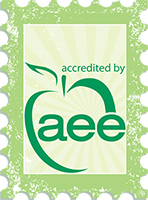At Kroka we place a top priority on the health and well being of the individual and the community. As a result, nearly 100% of our students complete their semester study programs, and many return to Kroka again and again as alumni, students, apprentices, and staff. Should some circumstances prevent the successful completion of the program, these are the policies and procedures that will apply:
Withdrawal prior to the start of the program
Should circumstances require you to change your plans, your tuition deposit and payments are refundable up to 60 days prior to the starting date of the program, less a $500 cancellation fee. After that date, all tuition and fees are non-refundable.
Withdrawal or dismissal from the program
Since our operating expenses in planning and staffing the program do not diminish if a student departs during the course of the semester, you acknowledge that your obligation to pay fees for the full program is unconditional. No deduction, remission, or refund of tuition charges will be made for any absence, dismissal, or withdrawal from the program due to disciplinary, academic, social, emotional, or personal reasons. Students and family will be held accountable, to the extent permitted by law, for Kroka’s expenses of enforcement and collection of those fees.
Medical Issues
Should a physical injury or illness that occurs during the program prevent participation or completion of the program, we will offer to apply the pro-rated unused portion of the tuition towards a future program with Kroka for that student or an immediate sibling.
Mental Health
While immersion in nature and wilderness travel is beneficial and healing for all, our semester programs are not clinically therapeutic nor appropriate for individuals who need routine, ongoing counseling or mental health support. Any participant who has had therapy within the past 12 months must establish a communication plan between Kroka and their clinician.
Change of plans
Kroka reserves the right to change it’s curriculum offerings, activities, schedules, itineraries, and staff personnel, as well as other policies and procedures, as circumstances may require.
Dismissal
Kroka reserves the right to dismiss a student from the program if the teachers, staff, or the Board of Trustees, determine that the behavior of the student is not in accordance with Kroka’s code of conduct and is jeopardizing the functioning of the program and/or the health or education of any student.
Transcript
Kroka reserves the right to withhold student evaluations and academic transcripts until we have received full payment of semester tuition and fees.
